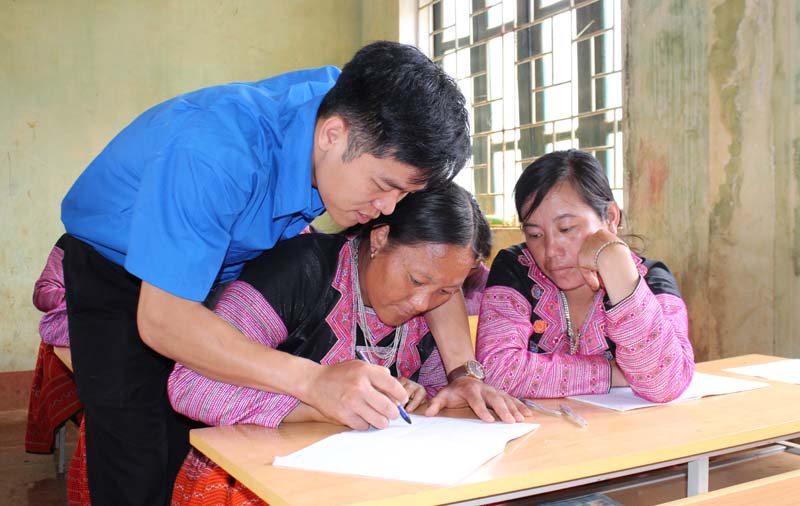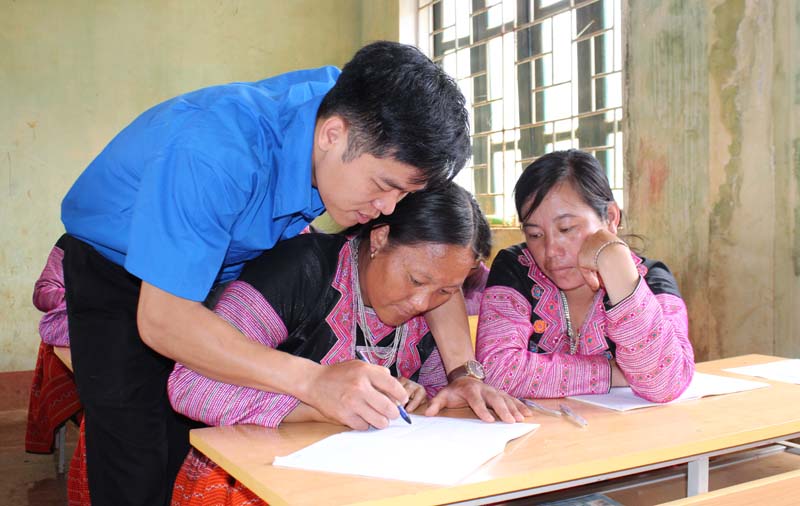



Volunteer teachers of Hang Kia B Secondary School (Mai Chau) devotedly
instructed women to write the first words.
In early June of 2018, two illiteracy classes of Hang Kia commune were officially opened with nearly 60 learners. This class is quite special because learners’ age ranged from 19, 20 years old to even those who are nearly 50 years old.
Because these are special classes, it is difficult to mobilize learners to attend classes, to teach them to remember, to write words is much more difficult. Because no one is looking for the women’s children, most of them have to take their children to school with them. In addition, the teachers do not have experience in organizing and teaching illiterate classes.
In order to mobilize and attract learners, besides the dedication, enthusiasm, wholeheartedness of the teacher staff, Hang Kia B Secondary School has prepared books, notebooks as well as flexible time for organizing classes. Previously, a number of illiterate literacy groups were organized in the evening but not being maintained and ineffective. At present, taking advantage of the agricultural free time, the classes are held regularly on all days of the week. It is worth mentioning, this is the time of summer vacation, most teachers of Hang Kia B Secondary School are people in other places to work here, therefore, Mai Chau district has a plan to support teachers from other schools, who know Mong ethnic language and understand the culture of the Mong ethnic people, have had experience in teaching illiteracy to support the school during summer vacation.
Literacy will help the local people in Hang Kia have a new awareness, new living way, starting from eliminating child marriage, not breaking the law. Despite many difficulties and challenges, but with the determination of both the political system, the provincial education and especially of the teachers on Mai Chau highland, there is a hope to open a new life in the hard land by teaching literacy on the rocky mountain.